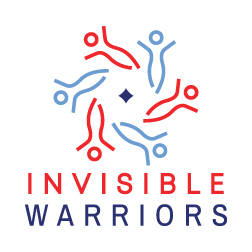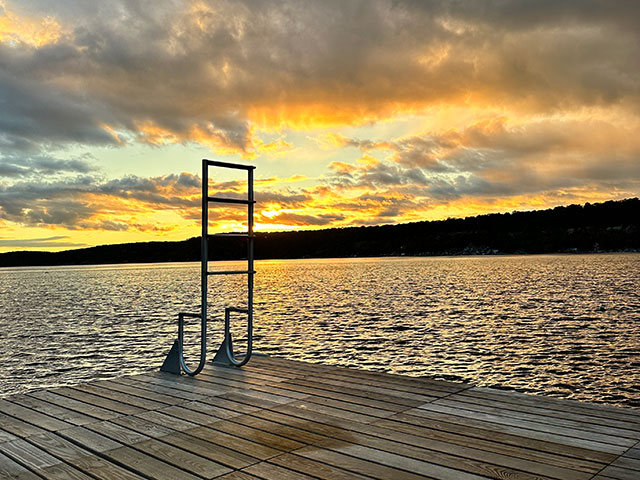
The Trouble with Hotels
The Trouble with Hotels
Now that the weather is warming up, people are getting back out on the road and heading for vacations, business, and travel in general. There are often many hassles along the way – airports backed up and planes not flying on time, gas prices are higher than we’ve seen in many years, and the cost of EVERYTHING has skyrocketed. But we don’t generally think of trouble with hotels as being high on the list of potential problems. Yet for those of us with chronic illnesses, autoimmune disorders, or invisible disabilities, we often find that in fact, accommodations when traveling can be a nightmare.
Not long ago, my husband and I made a trip to New Orleans to visit with a family member that we’d never met before and were super excited for this trip. The hotel was in the middle of the French Quarter and was quite an old building but had been recently renovated – or so we thought. I had made reservations months in advance to make sure that we would have the perfect vacation. I requested a handicapped room with a roll-in shower on the first floor where I could get my electric scooter in and out with no problems.
The first floor was because if there was a reason (like a fire) and the elevators didn’t work, I could get out of the building. I wouldn’t be able to get out in time if I had to take the stairs. The roll-in shower necessary was because I can’t lift my legs to get them over the side of a tub even if there’s a handlebar to hold on to. I have fallen in and out of tubs and have broken my wrist and ankle as a consequence. These requests to me were simple and easy to understand. The reservationist told me that my requests would be fine and that all had been taken care of. I need not worry.
The hotel troubles begin
However, when we got there, we were given a key to the third floor as far from the elevator as you could get. It was difficult to get both my husband and me in the room, let alone my scooter. Going back downstairs to ask why this had happened, they told me there were no rooms available other than this one – take it or leave it. We took it.
We had to leave the scooter parked downstairs in the check-in area and get my push wheelchair out of the trunk. Getting into the teeny-tiny lift, the footrest got caught in the elevator door, and it wouldn’t open. We were stuck for a half hour until my hubby was able to wrangle the footrests off the chair. The door laughed at us then and slid open. I had to hop into the room while the chair was folded up outside and carried in. it had to be placed behind the door which made it very hard to open the door to either get in or out of the room.
When we wanted to leave the hotel, we had to set up the wheelchair again (we just left the footrests in the room, not willing to risk getting stuck in the elevator again) and my hubby pushed me to the elevator and down. We then switched the chair for the scooter and we were off. We reversed the process coming back.
The shower was another thing. While it did have the roll-in feature, the floor was ceramic tile (very pretty but also VERY slippery). I had to have hubby hold me up while I was in there (and the bathroom was also VERY small).
The final straw was the fact that I am allergic to strong smells and have serious asthma attacks where there are colognes or other scents in the air. We walked into this room and it immediately sent me into a coughing and breathing calamity because the smells of cleaning products were so strong. Yes, it was nice that the room was sanitary and clean, but it took two of the seven days we were there to get the smells out. This was because they never came back to provide clean towels or pick up used linens.
It was a nightmare
All in all it was a nightmare. We had a great time, but no thanks to the hotel. We will never stay there again. Sadly, my story, while actually funny now, back in June of 2020 was not funny at all. The hotel blamed their errors on corporate reservation takers and “gifted me” with a 2000-point bonus. The room was $250 a night and you needed like 120,000 points to exchange if you didn’t want to pay cash.
This is not the only time I’ve had issues and I know many other people (both those with and without medical challenges) that have had nightmare experiences in various different hotels around the country. There are government rules such as the ADA that are supposed to help with these situations, but the hotels either take their chances, or work around the laws in one way or another. It is going to take campaigns against them on social media, commenting on their websites, writing to your congressperson, and helping organizations such as Invisible Warriors to fight these battles so that we can enjoy our vacations and traveling experiences, feel safe and want to go back again.
This article by Rebecca Theim shares the troubles and remedies of many travelers with hidden chronic and autoimmune disabilities. If we all take a stand and share our voices, things will change. Working together, we can help eliminate some of the troubles with hotels.
When you are traveling, ask lots of questions when making your reservations, get the name of the person you are speaking with, and make sure that you know your rights. I hope you have a wonderful trip!
The Trouble with Hotels
Want to know more about Invisible Warriors? Sign up for our newsletter to receive regular updates. Contact us HERE. Or click the button below to schedule a meeting with Founder Nancy Becher!








